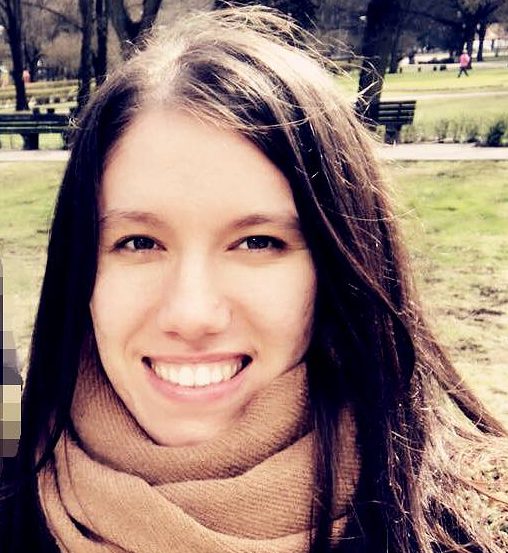Xhensila has been assisting our legal experts in the field of asylum law since September 2016 and after finishing her intership has continued work as a volunteer for the Estonian Human Rights Center. Get acquainted with her by reading the interview below.

What is your background?
I have studied Bachelor in Law in Beder University in Albania and I am about to finish my master studies in a mixed curricula such as “International Law and European Law and Law and Technology” in Tallinn University of Technology. I have been working in “Atlantis Dialog Platform” for 2 years in subjects like dialog between cultures, tolerance and diversity.
How much did you know about the field of human rights beforehand?
Since my background is law, during my years of studies I have taken several human rights courses which have broadened my knowledge and my interest in human rights issues.
Why did you choose to do your internship at the Estonian Human Rights Center?
As far as I am informed Estonian Human Rights Center as an independent non-governmental human rights advocacy organization, developed relatively in a short time, not yet a decade, compared to the accomplishments achieved, it appears to be a history of success among other Estonian NGOs. EHRC in cooperation with UNHCR covers some of most important human rights issues such as equal treatment of minority groups, diversity and human rights of asylum seekers and refugees as well. Therefore, I guess EHRC would be the first station for every law student having an interest in the relevant branch of law.
What have been the most interesting aspects about the internship and continuing volunteer work?
During the internship in EHRC I had the opportunity to work under the supervision of the legal expert, Anni Säär in several tasks regarding refugee issues. It has been a very interesting experience for me to go through the whole process that leads to international protection but unfortunately I still haven’t witnessed a successful case in the cases that I assisted to. It starts when our clients (asylum seekers) sign power of attorney, goes on with conducting interviews and doing the research of country’s origin information to support the case with arguments and represent them in Police and Border Guard Board, and sometimes it ends in the Administrative Court or in the higher instances. Another activity was visiting the accommodation center of asylum seekers in Väike-Maarja rural municipality in Vao village to provide counselling to our clients (asylum seekers) and monitoring the situation and conditions there. Having a legal background from the university studies helped me have a better understanding of the issues and manage the tasks more easily.
I evaluate my internship experience as a very relevant, helpful and useful and a great start in my legal career. And great thanks goes to my supervisor for the very precious help and advices during my work and to the rest of the other EHRC staff for being very friendly. I would evaluate the EHRC’s staff as very hardworking, cooperative, helpful, cheerful and with a very homelike atmosphere, which should be the key for such a successful institution.
What are your plans for the future?
In the wide range of topics included and regulated by law human rights and related issues are my main field of interest. Having gained even more skills form my work in EHRC in the future I would like to work in advocacy of human rights the similarly aimed institutions in my country or abroad.
Since you are here...
It is important to protect everyone’s human rights, because it helps to keep stability and peace in the society. There are many challenges for protection of human rights in Estonia: intolerance has really come out of the closet. Bad things happen when good people are too passive, but together we can make a change.
Estonian Human Rights Centre is the competent, accountable and impactful independent human rights organisation in Estonia. Your recurring or one-time donation helps to stand up for human rights everywhere: in courts, in the media, in schools, in the workplace, on the streets and in governmental venues.
Donating is easy, and you can use your credit card if donating from abroad.
Donate now